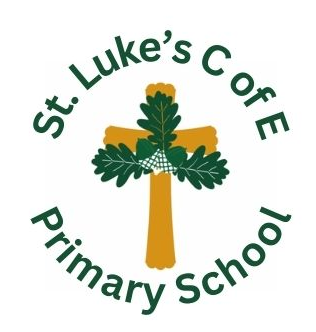Science
Science Purpose of Study
A high-quality science education provides the foundations for understanding the world through the specific disciplines of biology, chemistry and physics. Science has changed our lives and is vital to the world’s future prosperity, and all pupils should be taught essential aspects of the knowledge, methods, processes and uses of science. Through building up a body of key foundational knowledge and concepts, pupils should be encouraged to recognise the power of rational explanation and develop a sense of excitement and curiosity about natural phenomena. They should be encouraged to understand how science can be used to explain what is occurring, predict how things will behave, and analyse causes.
Aims
The National Curriculum for Science aims to ensure that all pupils:
- Develop scientific knowledge and conceptual understanding through the specific disciplines of biology, chemistry and physics.
- Develop understanding of the nature, processes and methods of science through different types of science enquiries that help them to answer scientific questions about the world around them.
- Are equipped with the scientific knowledge required to understand the uses and implications of science, today and for the future.
Science Intent
What are we trying to achieve for our children in Science?
- We want our children to be inquisitive and passionate about science.
- We want our children to be investigative scientists.
- We want our children to revisit and build on their scientific knowledge, as well as have a better conceptual understanding of science’s application in the real world (especially with regards to global issues).
- Knowledge will be linked, both within science and cross-curricularly to strengthen and deepen children’s understanding of the sciences.
- Procedural fluency and semantic knowledge will be at the heart of our curriculum supported by a variety of appropriate experiences.
- We aim to embed reading into our delivery of science.
- We strive to ensure children receive high quality science lessons by monitoring and supporting teachers with their own subject knowledge.
- We want children to use reasoning and critical thinking vocabulary as well as questioning, clarifying and justifying ideas to develop their communication skills.
Science Implementation
How is the curriculum delivered?
- Science is taught for 2 hours per week in all year groups.
- Teaching input is reflective of stage of development.
- Content is grouped to help build knowledge links between similar points.
- Content is revisited and recapped using a spacing model and retrieval to embed knowledge.
- Disciplinary [the methods that establish substantive facts] and substantive [established facts] knowledge is planned for. Progression in substantive knowledge is mapped out to specific classes of the school and disciplinary knowledge is layered to make clear expected progression by year group. Teacher’s planning reflects this.
- Procedural fluency in Working Scientifically (achieved through repetition and practice) will be underpinned by semantic knowledge through appropriate tasks and experiences. Lessons provide appropriate links to threshold concepts within science, ‘real life’, prior knowledge and possible applications to STEM subjects.
- The local library service is used to ensure reading is embedded into science topics.
Science Impact
What difference is the curriculum making?
- Subject content is transferred to Long Term Memory through recall and retrieval strategies. Memory = Knowledge.
- Clarity of endpoints of each milestone.
- Knowledge is ‘joined-up’ making strong, semantically rich schemas for learners.
- Greater knowledge will allow for better thinking across all areas of the curriculum.
- Leaners have a foundation of knowledge ready for their next steps in education.
St. Luke's Values in Science
Possessing Friendship: Working effectively with others towards a common goal, using individual strengths to achieve optimal outcomes, a key aspect of both scientific teams and close friendships.
Possessing Love: Demonstrating respect for others’ ideas and viewpoints. Demonstrating respect for the equipment and materials they use in lessons and especially for the living things, they will encounter throughout their study.
Having Originality: Asking questions and problem solving; sometimes thinking outside the box to solve a problem.
Being Understanding: Showing concern for the environment and communities affected by emergency. Recognising how we care for each other by using scientific advancement to benefit all e.g. sharing vaccines with developing countries.
Possessing Resilience: Being resilient in adapting an approach to investigations to ensure a successful outcome, particularly in practical situations.
Possessing Integrity: Following rules and conventions when conducting investigations and presenting findings accurately.
Possessing Selflessness: Working as part of a group or team by sharing scientific knowledge to achieve a successful outcome.
Possessing Hard Work: Science promotes diligence through methodical investigation, accurate observations and careful recording of results.
